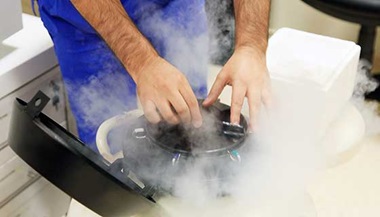5 Symptoms of Cancer You Might Be Ignoring-But Shouldn't!
Sometimes, a cancer diagnosis comes out of the blue, with no symptoms at all. But more often, there are various symptoms that may be warning signs of the disease.
Your healthcare providers would like you to pay attention to your body. That way, you’ll notice if one or more of these symptoms begin suddenly or get worse. If so, see your doctor to ensure there’s no cause for concern.

Shortness of Breath
Many things can cause shortness of breath. It could mean something as simple as needing to get more exercise.
If you notice you’re getting out of breath with normal activities or walking stairs, however, that’s abnormal and should be evaluated.
Bleeding
Doctors consider certain types of bleeding more indicative of cancer than others. While they could be caused by other conditions, these bleeding types should be evaluated by a doctor:
- Coughing up blood, called hemoptysis
- Blood in stool, which can look dark or tarry
- Abnormal vaginal bleeding
- Blood in the urine (hematuria)
- Bloody nipple discharge
Lumps and Masses
Sometimes, lumps can be completely normal. For example, a cold can cause your lymph nodes to enlarge. This is temporary and is your body’s way of fighting off the cold.
Difficulty Swallowing or Feeling Full
Does food get stuck in your throat? Do you have difficulty swallowing? This is called dysphagia. It may or may not be a sign of cancer. If it gets worse over time, you should call your doctor.
Maybe you notice a “full” feeling even when you’re hardly eating. That also warrants a visit to your doctor.
Changes in Body Functions
Pay attention to changes in your body functions. These changes can be caused by many different factors (some serious, though many not).
Call your doctor if you notice:
- Sudden constipation or diarrhea
- Difficulty passing urine or passing stool
- Passing air in urine or urine mixed in your stool
- Feeling like you’re not emptying your bowels completely
- Any other change from your normal bowel function
There are other ways your body may try to alert you to a potential cancer. For five more symptoms not to ignore, see the recommendations of Johns Hopkins surgical oncologists.





